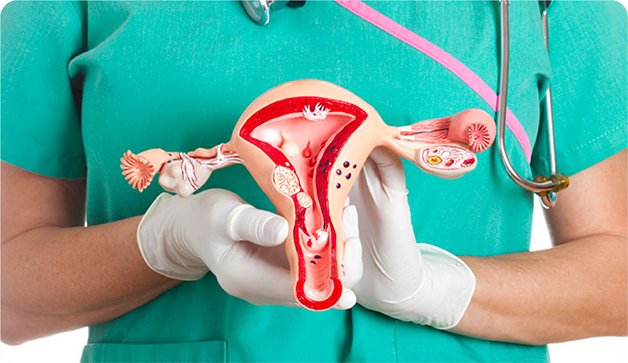Ovarian Cancer
Ovaries are two almond-shaped egg-producing female reproductive organs situated on each side of the uterus. When cancerous growth in the ovaries begins to proliferate, it leads to ovarian cancer. Cancer may develop in one or both ovaries. It is the most common cancer in women which is detected in later stages. Hence, becomes challenging to treat.


Types of Ovarian Cancer
Depending on the type of cell affected, ovarian cancer is the following types:
- Epithelial tumor: This is the most common type of ovarian cancer which accounts for cases. This cancer develops in the thin layer of tissues surrounding the
- ovaries Stromal tumor: This is the second most common type which accounts for 7% of all cases. This for 90% of all cancer develops in the hormone-secreting cells of the ovarian tissues
- Germ cell tumor: This is a rare type of cancer which develops in the egg-producing cells






